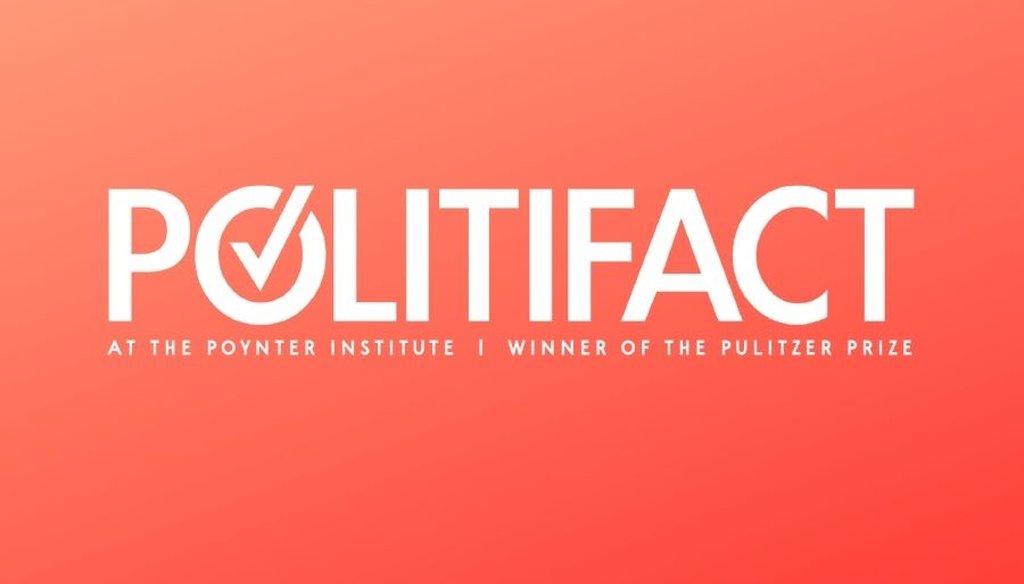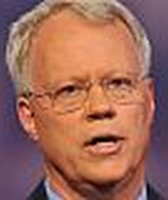Get PolitiFact in your inbox.

Have you filed your taxes yet? They're due by midnight.
Today is the day many Americans dread. Tax Day. The deadline to file income taxes.
We thought it would be interesting to remind you of some fact-checks we and our friends at PolitiFact have written regarding income taxes.
The 30 percent tax rate called for under President Barack Obama’s proposed Buffett Rule "is lower than the prescribed tax rate for millionaires already -- not just for millionaires, for people making over $200,000."
Vice President Joe Biden in a April 12th, 2012 in a speech in Exeter, N.H.
The White House has recently mounted several public events to rally support for a proposal it calls the "Buffett Rule" -- a provision that would ensure that the richest Americans wouldn’t pay federal income tax rates lower than that of middle-income Americans.
During an April 12, 2012, visit to Exeter, N.H., Vice President Joe Biden focused his speech on the proposal. Here’s a portion of what Biden said:
"No one who makes a million dollars or more in any single given year will pay at an effective tax rate that's less than 30 percent." Later, he added, "Anybody making a million dollars can't pay 30 percent in taxes? That's lower than the prescribed tax rate for millionaires already -- not just for millionaires, for people making over $200,000."
In the speech, Biden mixed and matched two different types of tax rates -- marginal tax rates, which refer to the rate paid on the last dollar of income, and effective tax rates, which refer to the percentage of income someone ultimately paid in taxes. When Biden says the rate required by the Buffett Rule "is lower than the prescribed tax rate for millionaires already," he’s comparing the percentage of income paid as taxes (the Buffett Rule) to a marginal tax rate ("the prescribed tax rate for millionaires already"). Making this comparison is mixing apples and oranges.
In the meantime, if you look at the effective tax rates paid by the two groups he’s talking about, he’s right that millionaires already have an effective tax rate of at least 30 percent, assuming their income doesn’t include capital gains -- but he’s wrong when he says that taxpayers earning $200,000 do. In fact, taxpayers would have to have much higher taxable incomes before facing that rate -- $617,000 for married couples and $465,000 for individuals. Overall, Biden’s claim is a mixture of accurate and inaccurate information. We rate it Half True.
"[R]emember, the president proposed eliminating charitable deductions for higher-income taxpayers."
Former Republican presidential candidate Rick Santorum in a Feb. 19, 2012 speech.
If President Barack Obama has his way, it won’t pay for some to give anymore.
Well, that’s the message Rick Santorum told an audience of about 3,000 people at a campaign stop in Georgia before the Super Tuesday primaries.
About 45 minutes into his remarks, Santorum made this statement: "Now we have an administration that’s trying to wipe the decks. Yes, remember, the president proposed eliminating charitable deductions for higher-income taxpayers to cripple further these … churches and nonprofits."
The president has proposed in his budget for fiscal year 2013 a reduction -- but not eliminating deductions for individuals making more than $200,000 a year or families reporting income greater than $250,000. The fiscal year begins Oct. 1 and end Sept. 30, 2013. Several experts we interviewed could not recall any prior proposals by Obama to enact such changes.
PolitiFact Georgia filled out a form on Santorum’s campaign website with questions about this statement, but it didn’t get a reply. We also called the Santorum campaign, which cheerfully asked us to send an email to a campaign spokesman. We emailed the spokesman twice but didn’t get a reply.
Santorum’s statement seemed off base from anything we’ve seen or read. Our rating: False.
The "mega-rich" pay about 15 percent in taxes, while the middle class "fall into the 15 percent and 25 percent income tax brackets, and then are hit with heavy payroll taxes to boot."
Warren Buffett in an Aug. 14, 2011 New York Times op-ed
It's not often you see someone stand up and say, "Tax me more!"
Yet that's just what famed investor Warren Buffett has done in an op-ed in the New York Times headlined, "Stop Coddling the Super-Rich." Buffett says that very wealthy people like himself pay lower tax rates than the middle class, thanks to special tax categories for investment income.
"While the poor and middle class fight for us in Afghanistan, and while most Americans struggle to make ends meet, we mega-rich continue to get our extraordinary tax breaks," he wrote.
As an example, Buffett said he paid an effective tax rate of 17.4 percent, while people who worked in his office made much less but paid higher effective tax rates of between 33 percent and 41 percent, averaging 36 percent.
In the final analysis, there are two categories: the rich and the really rich. And the evidence tends to point to the conclusion that the really rich pay less in taxes as a percentage of income then their merely well-to-do counterparts -- if their income comes primarily from investments. Buffett's statement was rated True.
"America's wealthiest 25 percent pay 86 percent of total income taxes. Wealthiest 5 percent pay 60 percent of total income taxes."
U.S. Rep. Tom Graves, R-Ga., in an April 13, 2011 Twitter post.
When tax time rolled around last year, Georgia congressman Tom Graves began posting messages on Twitter about the current tax system.
This one got our attention.
"America's wealthiest 25 percent pay 86 percent of total income taxes. Wealthiest 5 percent pay 60 percent of total income taxes," the message said.
His spokesman, John Donnelly, directed us to a report by the Internal Revenue Service that was completed this past winter, based on 2008 data. The report shows that the top 5 percent of taxpayers paid 58.7 percent of federal income taxes. The top 25 percent of taxpayers paid 86.34 percent of total income taxes.
Graves was off by a percentage point in relaying the figure for the top 5 percent, but both of his numbers are very close to the IRS data. And while using only the federal income tax as a stand-in for the total federal tax burden paints a somewhat skewed picture, Graves was careful to make his words in the tweet accurate. So we rate his claim as True.
Our Sources
PolitiFact, April 12, 2012, "The 30 percent tax rate called for under President Barack Obama's proposed Buffett Rule "is lower than the prescribed tax rate for millionaries already -- not just for millionaries, for people making over $200,000."
PolitiFact Georgia, Feb. 19, 2012, "Remember, the president proposed eliminating charitable deductions for higher-income taxpayers."
PolitiFact, Aug. 14, 2011, "The 'mega-rich' pay about 15 percent in taxes, while the middle-class 'fall into the 15 percent and 25 percent income tax brackets, and then are hit with heavy payroll taxes to boot.' "
PolitiFact Georgia, April 13, 2011, "America's wealthiest 25 percent pay 86 percent of total income taxes. Wealthiest 5 percent pay 60 percent of total income taxes."























































